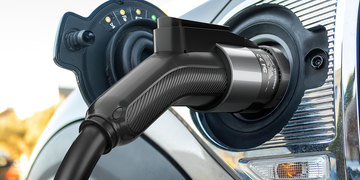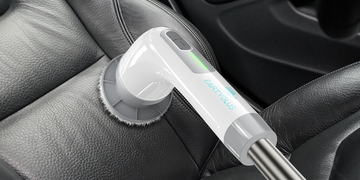Are EV Charging Adapters Safe? Well, make sure you only use manufacturer-approved charging cables. Never use non-approved adapters. Non-approved adapters may seem like a quick fix, but they can bypass safety features installed in manufacturer-approved chargers. They can also cause shocks, fires, and even damage your car's battery.
As the demand for EVs rises, so does the need for efficient and convenient charging solutions. One crucial aspect of EV charging that often goes overlooked is the safety of charging adapters.
EV charging adapters serve as the interface between the charging station and the vehicle, allowing compatibility between different plug types and power levels. While these adapters are essential for ensuring EV owners can charge their vehicles in various locations, questions about their safety have arisen.
So, are EV charging adapters safe? Let's delve into the factors that contribute to their safety.
Certifications and Standards: Reputable manufacturers adhere to stringent safety standards and certifications for their charging adapters. These standards ensure that the adapters undergo rigorous testing to meet safety requirements. Look for certifications like UL (Underwriters Laboratories), CE (Conformité Européenne), or TUV (Technischer Überwachungsverein) to ensure the adapter meets safety standards in different regions.
Quality and Construction: The build quality of an EV charging adapter plays a significant role in its safety. High-quality materials and robust construction reduce the risk of electrical faults, overheating, or physical damage during use. Opting for adapters from trusted manufacturers known for their quality products is advisable.

Overcurrent Protection: Overcurrent protection is crucial for preventing damage to both the vehicle and the charging infrastructure. Adapters equipped with built-in overcurrent protection mechanisms safeguard against excessive currents, which can lead to overheating or electrical hazards. Always ensure that the adapter you choose offers adequate overcurrent protection.
Proper Usage and Maintenance: Ensuring safe operation of EV charging adapters also depends on user behavior. Following manufacturer guidelines for proper usage, including correct plug insertion and removal procedures, is essential. Regular inspection for signs of wear and tear, such as frayed cables or damaged connectors, can prevent potential safety hazards.
Compatibility and Voltage Rating: Using adapters that are compatible with both the charging station and the vehicle is crucial for safety. Mismatched adapters or adapters with incorrect voltage ratings can result in electrical faults or damage to the vehicle's charging system. Always verify compatibility and voltage ratings before using an adapter.
Manufacturer Reputation: Choosing charging adapters from reputable manufacturers with a track record of producing safe and reliable products is paramount. Researching user reviews and feedback can provide insights into the reliability and safety of a particular adapter.
While EV charging adapters are generally safe when used correctly and sourced from reputable manufacturers, it's essential to remain vigilant and prioritize safety at all times. Regularly inspecting adapters for signs of wear, following manufacturer guidelines, and being mindful of compatibility and voltage ratings are key practices to ensure safe and efficient EV charging experiences.
Are EV Charging Adapters Safe? EV charging adapters can be safe and reliable accessories when chosen wisely and used properly. By considering factors such as certifications, build quality, overcurrent protection, proper usage, compatibility, and manufacturer reputation, EV owners can minimize safety risks and enjoy the convenience of charging their vehicles with peace of mind.





